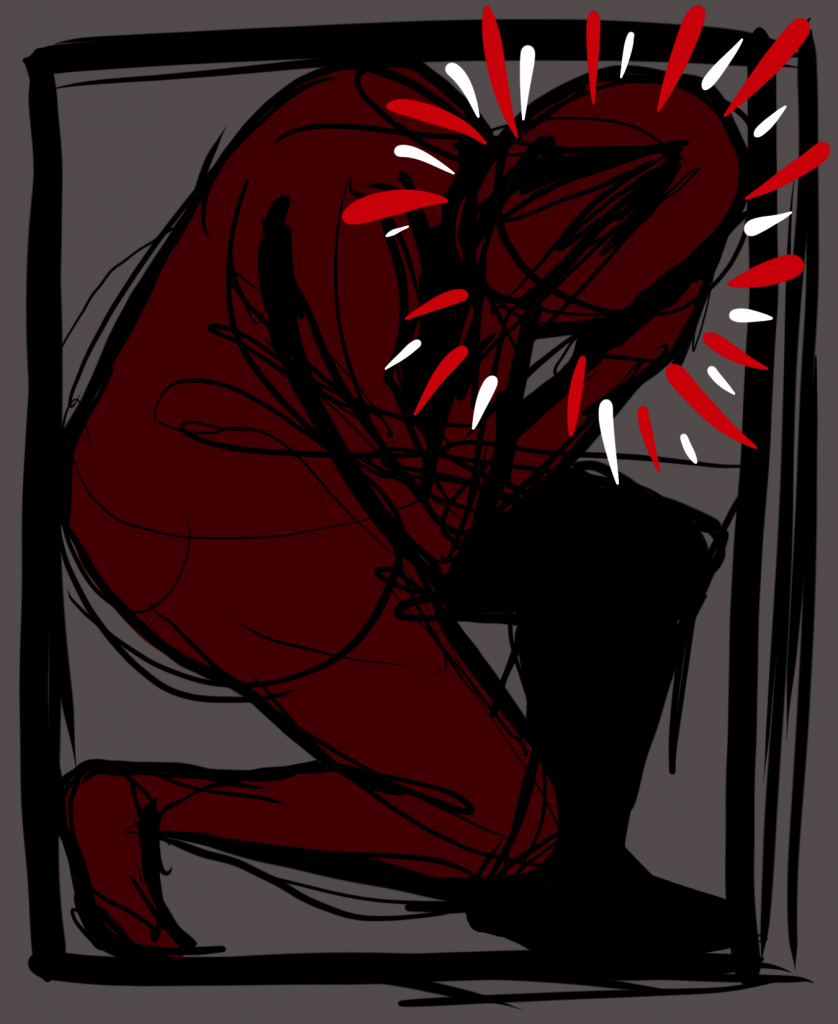I knew my brain didn’t like acid from the very first time I tried it. Tripping off of only half a tab in the College-in-the-Woods dining hall and feeling fully uncomfortable the entire time should have been all it took for me to realize that psychedelics just aren’t my thing. Fast-forward to weeks later when my new college boyfriend and I decided a full tab was a better idea to experiment with. Long story short: It didn’t go well.
It’s been over three years since that bad trip, but I still can’t give you a full account of what happened because I cannot force myself to relive it long enough to write it all down. The two most prominent things I remember are screaming as my boyfriend’s eyes turned black in front of me when the acid first hit, and repeating one phrase in my head for the 12-plus hours the trip lasted: I wish I was dead.
Twelve hours is a really long time to feel like you’ve permanently lost touch with reality. I cried out of pure relief when the visuals finally started to fade; even though I knew it was just a drug, I was convinced that my brain was going to be like that forever. But what I didn’t consider was that I was partially right — that the acid would continue to affect me long after it was out of my system.
Hallucinogen-persisting perception disorder (HPPD) causes someone to experience visual distortions similar to what they saw during their drug experience. These visuals usually cause a person to associate what they’re seeing with how they felt during their trip, inciting extreme anxiety and confusion. HPPD can last for days or months or years — no one knows how to make it go away — and not much is known about what actually causes it.
I first experienced an HPPD flashback in the middle of my “Congress and the President” class a few weeks after my bad trip. One minute I was watching the professor lecture about conference committees to a room of 30; the next, the space had suddenly doubled in size. All over again I was forced to momentarily relive the worst hours of my life, causing me to panic and run from the room until it passed. That type of flashback happened consistently in each of my classes for the semesters after the trip — even when I was in the middle of taking a final exam months later.
Besides flashbacks, acid opened my brain up to new anxieties. I’d never before been claustrophobic. Now, I can barely force myself to get on an airplane. I hadn’t ever had a problem with loud noises or bright lights. Now, that type of sensory overload makes me think I’m experiencing things that aren’t really there. Living with the constant paranoia that a flashback might happen has changed how I approach every situation I put myself in: I always have to be ready for that panic attack.
We’re supposed to have opinions in this section, so let me make mine clear: I’m not saying you shouldn’t do LSD. Some people — maybe even most people — have an eye-opening, life-changing experience with it that positively impacts their life. What I am advocating for is to make sure you’re considering the long-term effects of what this drug can do to you. As incredible as acid makes you feel, it can cause that same level of misery. Psychedelics take mental preparation that cannot be taken lightly.
I used to say that acid ruined my life, but looking back on my experience, I’m grateful I did it when I did. Before the trip, I never took drugs seriously. It took that terrible experience to make me approach what I put into my body so much less recklessly. Drugs have the ability to entirely alter the way you live your life — treat them like it.



